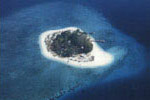
|
|

|
|
|
The importance of women in maintaining male status is a common theme in academic studies of Bugis society. Presumably, these attitudes would have been embedded in the culture that Bugis migrants brought to the Malay world in the late seventeenth and eighteenth centuries. On the island of Riau, which became the center for Bugis influence in the kingdom of Johor and the larger Malay world, intermarriage between Bugis and Malays meant these gender imperatives were somewhat diluted. Nonetheless, the influence of women of Bugis-Malay descent was still evident in Riau?s ruling circles in the early nineteenth century. During this period, however, new formulations of gender status began to penetrate Islamic society through the reformist and more fundamentalist teachings of the Wahabi. The influence of these teachings, which strengthened existing ambiguity towards the presence of women in public life, are evident in the Tuhfat al-Nafis, the history of the Bugis diaspora written by the great scholar Raja Ali Haji. By the end of the century the place of well-born women in Riau is less prominent than a hundred years earlier. However, by examining the literary and historical sources, this paper argues that the environment created during the nineteenth century still allowed women a space in which they could write, and thus laid the basis for a more vigorous discussion of male-female relationships in the twentieth century.
|
Jointly organized by IIAS the Netherlands and The State Institute of Islamic Studies, Makassar